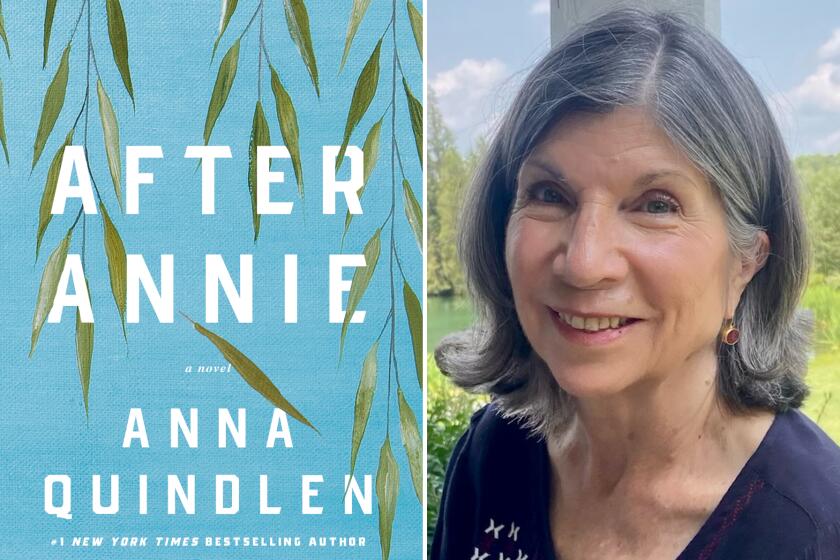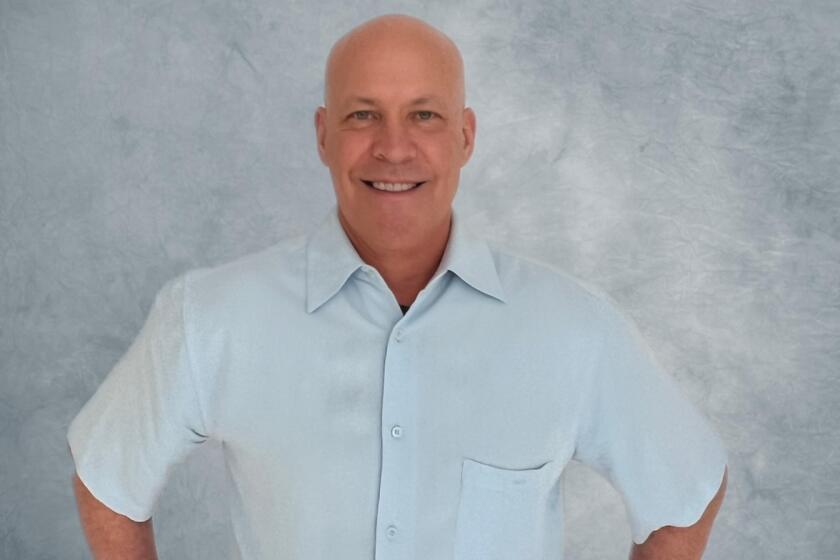Author McEwen’s blockbuster ‘Sniper’ series based on fact
By Antoinette Kuritz and Jared Kuritz
When trial attorney Scott McEwen sat down with Chris Kyle to help him write his biography, McEwen knew it would be a great story.
After all, Kyle was a legend, a man who had saved countless American lives while becoming the most prolific sniper in history. So deadly was Kyle that the enemy put a bounty on him while his military family called him “The Legend.”
What McEwen couldn’t know was that not only would the book be a best seller, but the movie based on the book would be a blockbuster — and that the two would provide the American public with a window into the devotion to country of the men and women who serve in the armed forces.
Now writing “The Sniper Elite” series of books, thrillers based on stories shared with him by men and women who served, McEwen took some time to answer some questions. You can meet him — and ask some questions of your own — at 7:30 p.m. May 20 at Warwick’s in La Jolla. And he will be keynoting and teaching at the La Jolla Writers Conference from Nov. 6-8.
Q: You are a trial attorney. What in your background prepared you to be a writer?
A: I am a recovering trial attorney. But the law teaches you to be precise and strive for accuracy. These are very important parts of writing.
Q: How did you come to co-author “American Sniper”?
A: Chris and I started the project while he was still on active duty with the SEAL teams. The project started as a third-person biography and was changed to first person (autobiography) at the request of the publisher. I hired the co-writer to help finish the conversion to first person.
Q: Were you surprised at the success of the book? Why or why not?
A: I was not surprised that the story was successful — Chris was an amazing man. I was astonished at its level of success with the public — and I still am amazed.
Q: What was the inspiration behind your “Sniper Elite” series?
A: I had heard so many true stories from Chris’ buddies of amazing heroism. Many of these stories could never be printed due to their “sensitive” classification. The Sniper Elite series fictionalizes the stories in a format I like to call “fiction.”
Q: With your “Sniper Elite” series, you move to writing fiction. But it is fiction based on fact. How much research goes into these books?
A: A lot of research — particularly into the regions where the battles take place and the bad guy factions involved.
Q: Do you do your own research or have a team?
A: My co-author Thomas Koloniar is a brilliant researcher.
Q: You tend to work with co-authors. How does this enhance the writing experience?
A: The research is very important to the authenticity of the work. Plus, as a business, you must take advantage of the genre being popular at that moment. When I write, I like to “free flow” the material and let the cleanup of concepts begin after all “acts” are drafted. I work with great people to help in this creation.
Q: What do you particularly bring to the co-writing equation?
A: I like to draft the story line and chapters, particularly the third act.
Q: How did your experience writing “American Sniper” play into your “Sniper Elite” series?
A: “American Sniper” provided the inspiration for the “Sniper Elite” series. The stories were provided through others I met on the journey.
Q: You saw your book, “American Sniper,” made into a blockbuster movie on which you were an adviser. What was the best part of the experience?
A: The best part of the experience was taking wounded SEAL team veterans to the set and watching (director) Clint (Eastwood) and (lead actor) Bradley (Cooper) interact with them.
Q: What are the benefits of translating a written story to screen? What are the drawbacks?
A: The benefit is that it appeals to a different (wider) audience. The drawback is that it is impossible to put an entire 400-page work into a two-hour movie, so part of the story is sacrificed.
Q: Your writing focuses on the SEAL Team experience. What message do you hope your readers take from your books?
A: I hope that the reader gets a better understanding of the amazing commitment the men and women of our armed forces make to this nation. The SEALs represent the tip of the military spear.
Q: What was the best advice you ever received as a writer?
A: Critics would be writers if they could be ...
Q: What advice do you give to aspiring authors?
A: Follow your passion — if the story makes you laugh or cry (hysterically) even in a crowded room — it is probably worth pursuing.
Antoinette Kuritz and Jared Kuritz are the team behind Strategies Public Relations and the La Jolla Writer’s Conference (www.lajollawritersconference.com).
Get the Del Mar Times in your inbox
Top stories from Carmel Valley, Del Mar and Solana Beach every Friday for free.
You may occasionally receive promotional content from the Del Mar Times.





